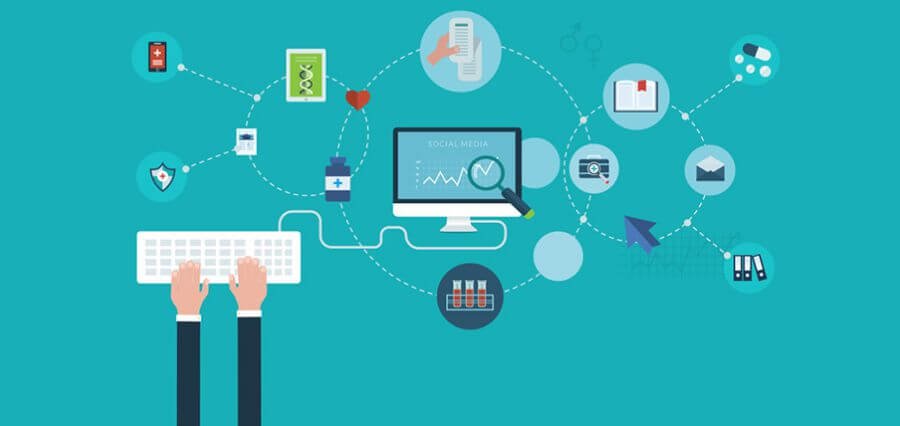Setting Unrealistic Body Images
With the advancement of technology, several digital platforms have raised, some enhance business, and some spread positivity and courage. Healthcare professionals also use this platform to spread awareness about different health conditions and diagnose patients through this in critical conditions, still a huge part of this spread misleading information, that can be lethal if practiced, with a wave of digitalization now everyone is an influencer, with or without the expertise or minimal education to speak on the topic. These misleading pieces of information affect our notion of a healthy life and force us to rethink our body image and social status. Here false beauty standards achieve craze and supremacy, blurring both the mental and physical health of a normal user. The idea of glass skin, flawless bodies, and immaculate lives create a delusion, inspiring us to believe in unattainable beauty standards. Rupi Kaur eloquently states, “You are your standard of beauty.” Because we are unaware of the efforts the influencers or celebrities have but achieve the shown result and most importantly we don’t know if the actual process is healthy or unhealthy. You need not starve yourself or hit the gym 4 times and day to achieve a certain body type, you need not buy expensive cosmetics, or fill your face with Botox and fillers to look a certain way.
Through this blog lets us unravel the scripted tactics and marketing strategies of brands and influencers that influences us to achieve certain body image or make us insecure.
Unrealistic physique standards:- Instagram is flooded with unrealistic physique standards, flawless, perfectly toned bodies, without stretchmarks and uneven color. One section of social media promotes an hourglass figure, whereas some other influencers glorify obesity. Diet plans, detox drinks everything is prescribed by them, and viewers also blindly trust and spend a hefty amount of money buying these products and following the diet plans, without knowing their side effects. Many times this is hazardous to health and causes many problems.
Psychological Impact:- Detrimental effect on mental health due to constant comparison is quite normal these days. Regular consumption of content that idolizes perfection in the body shape fills the viewer with anxiety and insecurity and this leads to emotional outbursts. They perceive themselves as falling short of the standard. This affects a person psychologically.
Eating Disorder:- To attain the ideal body shape or masculinity, people starve themselves, follow all kinds of unhealthy diets, and detox drinks without knowing if they will be beneficial or leave them in trouble. This greed to be a social butterfly with a perfect body and skin often lead to eating disorders like anorexia, bulimia, and binge eating disorder. Health is multi-dimensional, but social media preaches that it is limited to appearance only. This disguises other factors like fitness, mental well-being, physical well-being, etc.
Body Shaming and Cyberbullying: – Often people comment negatively on pictures to body shame or bully someone. This fills the person with insecurity and forced them to follow unrealistic and unhealthy methods to achieve the desired social beauty standards.
Let’s Challenge the Narrow Definition of Beauty: – Healthcare professionals and influencers should launch campaigns on body positivity and healthy eating habits. influencers should advise consulting doctors for any diet plans or weight loss or weight gain journey. Social media should inspire people to love people of all shapes, sizes, and ethnicity. It can also educate people about the mental and physical hazards of following these unhealthy diet plans.
Inspiring With Truth:- Influencers should share their real stories, stories of body positivity, self-acceptance, and holistic development. This would not only inspire many people but also spread body positivity and self-love.
Limited Consumption of Social Media Content:- Audiences should understand that influencers and brands tie up and work for branding and marketing, sometimes it could be for products, and sometimes it could be personal branding, and decide what is necessary and beneficial for them and what isn’t. Also, the screen timing should be reduced and more time should be spent with friends and family.
Educating the Young Users:- Users in their teenage should be properly thought about the ill effects of social media so that they should question the trend before following it, they should be aware of cyberbullying, and importance of body positivity, and the meaning of a healthy life to stay protected from the effects of these unrealistic body standards.
CONCLUSION
Social media influences a considerable amount in this digital era, and its impact on healthcare and body image is immense. Most of the time the platform is misleading and spreads unhealthy healthcare strategies. This platform is created to spread positivity and connect the world for more productive work, Unrealistic body ideals fueled by influencers and brands warp perceptions, triggering psychological distress and fostering eating disorders. However, a way forward emerges through collective action. Promoting authentic stories, advocating for diversity, and nurturing body positivity can counter the distortion. By fostering critical thinking, limiting exposure, and educating youth, we can challenge the dominance of harmful beauty standards. It’s a shared responsibility to reshape the narrative, fostering holistic well-being in a digital age.





